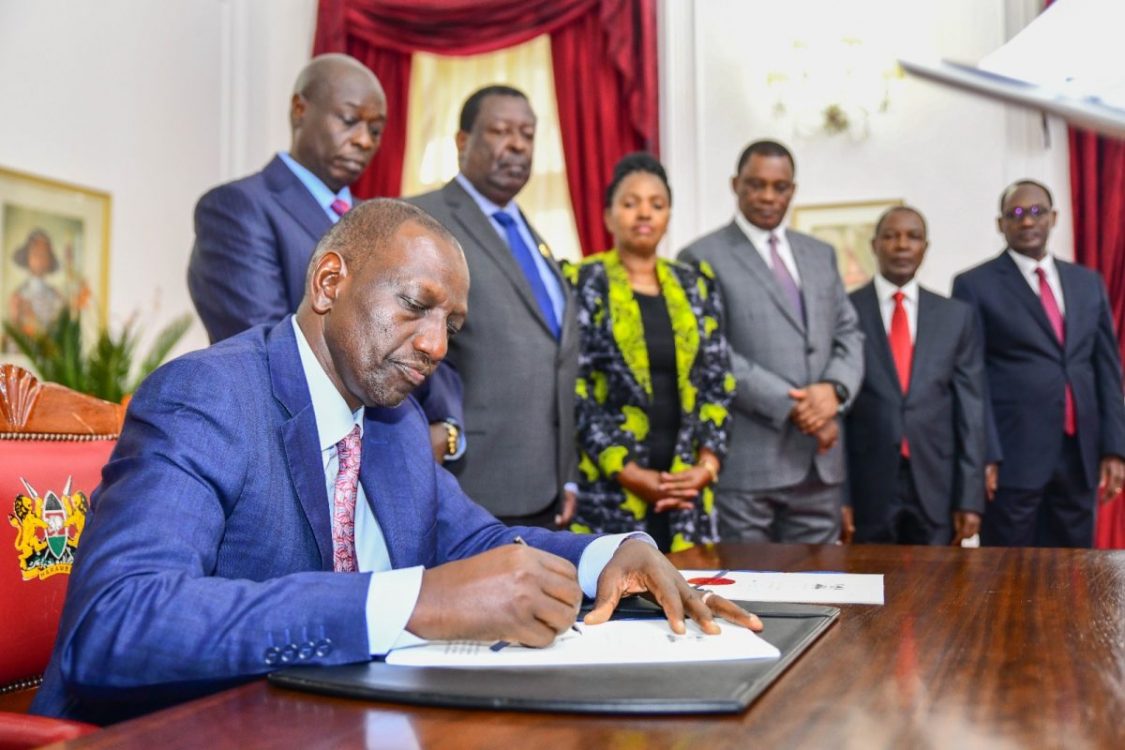Parts of 2024 Finance Bill represent step backward
By Fred.Aminga, May 20, 2024The 2024 Finance Bill promises to be one of the most contentious and divisive pieces of legislation, highlighting the increasing lack of foresight in the country’s fiscal planning.
One baffling aspect is a proposal to reinstate previously reduced taxes, raising questions about the rationale for last year’s reductions, and the sudden change in tack.
For instance, the excise duty on data, which was lowered from 20 per cent to 15 per cent in the previous Finance Act, is now set to return to 20 per cent. Such reversals undermine predictability and the ease of doing businesses, which tarnishes the attractiveness of Kenya’s business environment at a time when job creation is crucial. Tax policies must be more predictable, and it is a no brainer that they need to be aligned with clear economic objectives.
The government also wants to replace the digital services tax with a significant economic presence tax (SEP) tax. The tax will be payable by a non-resident person who derives income in Kenya through a digital marketplace. The scope of the SEP tax is broader than the digital services tax and targets ride-hailing, food-delivery and freelance services. The taxable profit will be deemed to be 20 per cent of the gross turnover. The tax is payable monthly at a rate of 30 per cent. Notably, the proposal has not stipulated a revenue or user threshold. Other countries, such as Nigeria and India, withe a similar tax have provided specific thresholds.
The proposal says the KRA may issue guidelines for better implementation of the tax. If these regulations can provide for an applicable threshold, this will make it more efficient to implement the tax. Experts say that such inconsistencies in tax laws, especially the annual adjustments, disrupt business stability and hamper Kenya’s competitiveness.
Amid a growing appetite for higher tax collections, an unpredictable tax regime can stifle economic growth, contrary to the apparent logic of the Treasury mandarins who seem to overlook that tax revenues flourish with a growing economy, not under a repressive tax regime. Winston Churchill’s counsel still stands: “I contend that for a nation to try to tax itself into prosperity is like a man standing in a bucket and trying to lift himself up by the handle.”
Another contentious proposal is the motor vehicle circulation tax (MVCT), misleadingly termed a wealth tax. If this tax is truly intended to target wealth, then it should exempt commercial vehicles, which are essential for economic productivity rather than displays of wealth.
Applying this tax to commercial vehicles will raise business costs further, ultimately burdening consumers and raising the cost of living and the cost of doing business. While the bill, introduces a motor vehicle tax set at 2.5 per cent of the vehicle’s value, the current cap of Sh100,000 on the tax unfairly benefits the wealthiest, making it more of a poverty tax.
Moreover, levying MVCT under the Income Tax Act is legally dubious, as motor vehicles, unless used commercially, are not income-generating assets. This might require the introducing a Wealth Tax Act for proper legal grounding. More importantly, commercial vehicles already subject to advance tax and businesses paying income tax would face double taxation under MVCT. This proposal appears not only economically flawed but also legally indefensible.
The focus on excise tax as a significant revenue source in the budget also deserves scrutiny. Also known as ‘sin tax,’ as it is meant to target goods considered harmful to consumers, it is also supposed to encourage consumption of locally manufactured goods. However, it is important to balance this with the potential economic repercussions of expanding excise duty on a wider range of goods and services, which defeats its intended role in the economy.
In many ways, the bill seems to be a step backward, and may exacerbate economic instability and burden citizens and businesses with erratic tax policies, hence the need for more scrutiny to avoid risks that may undermine economic growth.
— The writer is People Daily’s Business Editor
More Articles

